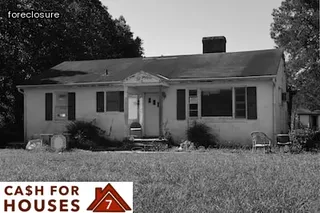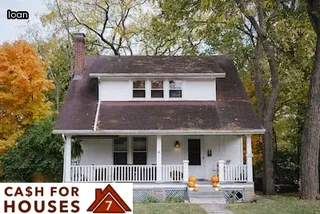Understanding Ohio foreclosures can be a complex process. It is important to understand the timeline of real estate laws before entering into any agreement.
The foreclosure process in Ohio typically takes anywhere from four months to two years, depending on the complexity of the case and other factors. In order for a lender to start the process, they must first file a complaint in court and serve it to the homeowner.
Once that has been done, the homeowner has 28 days to respond with an answer. If no answer is provided, then the lender will proceed with their motion for default judgment.
This motion must also be served on the homeowner and if no response is given within 14 days, then the judge may issue a foreclosure order. After this happens, there is still much work left to do such as setting up an auction date and advertising it publicly.
Even after this point, foreclosure proceedings may still take several more months before completion due to certain legal requirements that must be met during this time. Understanding all of these steps is necessary when dealing with foreclosures in Ohio so that homeowners are aware of their rights and obligations throughout the entire process.

Ohio's real estate laws provide a timeline for how long a foreclosure may take, but there are also pre-foreclosure strategies that can help homeowners avoid the process altogether. One pre-foreclosure option is to renegotiate the mortgage terms with the lender.
This can include adjusting interest rates, extending the loan terms, or lowering the total amount owed. Another option is for the homeowner to sell their property without going through foreclosure.
There are several programs in Ohio that offer assistance to those who are struggling to make payments, including loan modification and forbearance plans. These strategies could give homeowners time to make up any missed payments and avoid foreclosure.
Homeowners should also be aware of other options such as deed-in-lieu of foreclosure and short sales, which allow them to get out from under a mortgage without resorting to bankruptcy or foreclosure. Understanding these strategies is key to finding a solution that works best for each individual homeowner's situation.
The timeline of a foreclosure in Ohio starts with the mortgage lender serving the borrower with notice of default. This is usually done when payments have not been made for at least 90 days, and it is sent either by certified mail or by personal service.
If the borrower still fails to make payments after receiving the notice, then a second notice that includes an acceleration clause is issued. The acceleration clause states that if the full balance of the loan has not been paid within 30 days of the issuing of this second notice, then the lender can proceed to foreclose on the property.
Once foreclosure proceedings are initiated, it typically takes two to three months for them to be completed. During this time period, public notices are posted and a Sheriff's Sale takes place where potential buyers can bid on the property.
If there is no winning bidder during this sale, then the lender will take possession of it and become its new owner.

When it comes to avoiding the sale of your home in Ohio, understanding the timeline of real estate laws is key. Many homeowners may be unaware that it can take several months for a foreclosure to reach completion.
With this in mind, there are some steps that you can take to prevent or delay the process. First, contact your lender as soon as possible to discuss potential payment plans and other options.
Additionally, if you are able to pay off any delinquent payments, this may help stop or slow down the foreclosure process. Lastly, if you decide to sell your home yourself instead of going through a foreclosure auction, be sure to research local real estate laws and regulations so that you understand all of the steps involved and how long they will take.
By taking these proactive steps, you can work towards avoiding the sale of your home in Ohio.
When it comes to foreclosure proceedings, filing for bankruptcy can be a powerful tool for homeowners in Ohio who are struggling with mortgage payments. Bankruptcy is an official legal process that protects debtors from creditors attempting to collect what is owed by providing a method of reorganizing or eliminating debt.
Depending on the type of bankruptcy you file, you may be able to temporarily delay foreclosure proceedings and give yourself more time to make arrangements to save your home. The automatic stay provision of bankruptcy law prohibits lenders from continuing with their collection activities, including foreclosure, which can give the homeowner some much needed breathing room and provide the opportunity to work out a payment plan or other settlement options with the lender.
Even if foreclosure proceedings have already begun, filing for bankruptcy may still be able to stop the process if done in a timely manner. It's important to note however, that while filing for bankruptcy in Ohio can offer protections as far as halting foreclosure proceedings, it's no guarantee that you'll be able to keep your home long-term since this will ultimately depend on whether or not you can negotiate a successful settlement agreement with your lender.

Staying in your home during the foreclosure process is an important factor to consider when exploring Ohio's timeline of real estate laws. The foreclosure process can be a daunting one, but understanding the implications of staying in your home can help you make the best decision for yourself and your family.
During foreclosure, it's important to remain informed about what is happening with your home and communicate with any necessary lenders or lawyers involved. Although a lender may have already begun the legal process of foreclosing on a property, there are still ways to potentially stop it.
As long as you stay in your home and pay any additional fees or fines required by law, you might be able to delay or even prevent the foreclosure from happening. Knowing how long does a foreclosure take in Ohio can help you plan for this situation and determine if staying in your home is the best course of action for you.
Having knowledge about Ohio real estate laws is key when considering whether or not it makes sense to stay in your home during foreclosure proceedings.
The decision to represent oneself in an Ohio foreclosure can be a daunting one, and it is important to first consider the pros and cons of the situation. Representing oneself can be a cost-effective choice, as legal fees are eliminated or greatly reduced.
It also allows for greater control over the process and more direct communication with the lender. On the other hand, self-representation requires detailed knowledge of foreclosure laws in Ohio and familiarity with all relevant paperwork and procedures.
Additionally, self-representation opens up the possibility of overlooking important details that could lead to costly mistakes, such as missing deadlines or providing incomplete information. Furthermore, without experienced legal help it may be difficult to negotiate with a lender in order to avoid foreclosure altogether.
Ultimately, the decision whether or not to represent oneself in an Ohio foreclosure should be made carefully, taking into account individual circumstances and capacity for research and learning about state real estate laws.

Hiring an attorney to assist in the foreclosure process can be beneficial, however there are pros and cons that should be weighed before making a decision. While an attorney can provide valuable insight into the complexities of Ohio's real estate laws, they can also add to the cost of a foreclosure.
An attorney will understand all the steps required for a successful foreclosure and can help ensure that all paperwork is filed correctly and on time so that the process proceeds smoothly. Additionally, they may be able to negotiate with lenders or find other solutions which could make the process easier or even avoid foreclosure altogether.
On the other hand, hiring an attorney means having to pay legal fees and any costs associated with filing documents. This could add both time and money to the overall length of time it takes for a foreclosure in Ohio.
Ultimately, whether or not hiring a lawyer is worth it depends on your particular situation and resources available.
Preforeclosure is an important part of the foreclosure process in Ohio. It is the time period before a borrower officially defaults on their loan and enters into the foreclosure proceedings.
During this time, lenders are required to give borrowers ample time to attempt to catch up on missed payments or seek alternative solutions such as loan modification or refinancing. This period typically lasts for 90 days and gives borrowers time to negotiate with their lender and come up with a solution that works for both parties.
The lender may also be willing to accept less than what is owed in order to avoid lengthy court proceedings and additional costs associated with a full foreclosure. During preforeclosure, lenders must follow Ohio's real estate laws including providing detailed information about the loan, payment history, and any other relevant documents.
If the borrower is unable to come up with a solution during this period, they may enter into the official foreclosure process which can take anywhere from 6-12 months depending on the county in which they reside.

The Ohio foreclosure process is a complicated and lengthy one, with numerous steps and regulations. To better understand it, here is a step-by-step guide to the process.
First, the lender files a complaint with the court, which then begins the foreclosure process. The borrower will then receive notice of the complaint, after which they have 28 days to respond.
If they do not respond or cannot reach an agreement with their lender, the court will issue a judgment of foreclosure. This judgment will specify how much time the borrower has to pay off their debt before the property can be foreclosed on.
Once this time period passes, the lender can begin selling the property at public auction in order to recover their losses from unpaid debt. From start to finish, Ohio's foreclosure process typically takes between 90 and 180 days depending on how quickly each step is completed by both parties involved.
When facing foreclosure in Ohio, there are several potential solutions that may help prevent the situation from progressing. One of the most effective is to contact a housing counselor who can provide guidance and connect you with resources to get back on track.
A housing counselor can review your budget and determine if you may be eligible for a loan modification or other assistance programs that could reduce your monthly payments. Additionally, it is important to reach out to the lender and explain your current financial situation.
The lender may be willing to work with you on a payment plan or they may allow you to defer or reduce payments while working through the issue. Finally, if all else fails, filing for bankruptcy can be an option to explore and stop the foreclosure process.
Bankruptcy should only be used as a last resort because of its long-term effects on credit scores and ability to secure future financing.

In Ohio, lenders are allowed to pursue deficiency judgments against borrowers who have gone through foreclosure proceedings. This means that even if a lender sells the property for less than is owed on it, they may still try to obtain the remaining balance from the borrower.
To do this, the lender must win a lawsuit against the borrower and have a court issue a deficiency judgment that orders the borrower to pay the difference between what was owed and what was sold for. The lender must then file an abstract of judgment with the county recorder’s office in order to make it legally enforceable.
If a deficiency judgment is granted, borrowers may be responsible for any unpaid taxes or fees associated with their loan as well as any attorney’s fees and court costs that were incurred during the lawsuit. Deficiency judgments can remain enforceable for up to 15 years in Ohio but can be renewed after that time if necessary.
It is important for borrowers who are facing foreclosure to understand their rights regarding deficiency judgments so they can make informed decisions about their situation.
The foreclosure process in Ohio is a complex and lengthy one. It begins when a homeowner falls behind on their mortgage payments, which results in the lender filing a complaint with the court.
The homeowner then has 20 days to respond to the complaint, after which time they will receive an answer from the court. The answer will inform them of whether or not they are eligible for foreclosure proceedings.
If eligible, the court will schedule a hearing date where both parties present their cases and arguments. If the court decides in favor of the lender, they will issue an order of sale which allows them to list and market the home for auctioning off to potential buyers.
Following this order, a notice of sale must be published in two local papers for at least four consecutive weeks prior to when the auction takes place. During this time period, homeowners may still be able to negotiate with their lender to avoid foreclosure by offering repayment plans or loan modifications that are more manageable for them.
If all else fails however, on auction day the highest bidder wins ownership of the home and possession is given shortly afterwards. Depending on how quickly each step moves along in Ohio's foreclosure process, it can take anywhere from three months up to two years before completion.

Once a foreclosure has been initiated in Ohio, there are certain steps that must be taken and timelines that must be followed in order for the process to finish. After the foreclosure has been completed, homeowners typically have limited time to move out of their property.
The exact timeline varies depending on the specifics of the foreclosure process and the state's real estate laws. Generally speaking, homeowners have thirty days to vacate the premises after they receive an eviction notice from their lender.
In some cases, if a homeowner is able to negotiate with their lender or successfully reinstate their loan, they may be able to remain in the home beyond this thirty day period. It is important for homeowners facing foreclosure to understand all of their legal options before making any decisions about moving out of their property.
After a foreclosure in Ohio is complete, the process of reinstating the mortgage loan begins. The homeowner will be responsible for paying all past due payments plus all costs associated with the foreclosure.
Once these payments are received, they must be applied to the mortgage loan and any remaining balance must be paid off. If the homeowner is unable to make full payment, they may enter into a repayment plan or seek other options such as refinancing or selling their home.
Additionally, the homeowner may be able to regain possession of their property by redemption if certain requirements are met. In either case, it is important for homeowners in Ohio to understand all of their options after foreclosure and take steps to protect their property rights.
Once a homeowner falls behind on their mortgage payments, the timeline for foreclosure in Ohio can be quite long. Depending on the homeowner's financial situation, they may have up to six months before they are considered in default of their loan and can go into foreclosure.
This is due to the fact that lenders in Ohio must wait at least three months after a homeowner misses their first payment before beginning the foreclosure process, and an additional three months before filing a complaint with the court. During this time period, lenders must also make an effort to contact the homeowner and offer assistance or discuss any potential repayment plans.
If a resolution cannot be reached, then foreclosure proceedings will begin in as little as two months or could take up to nine months depending on several factors.